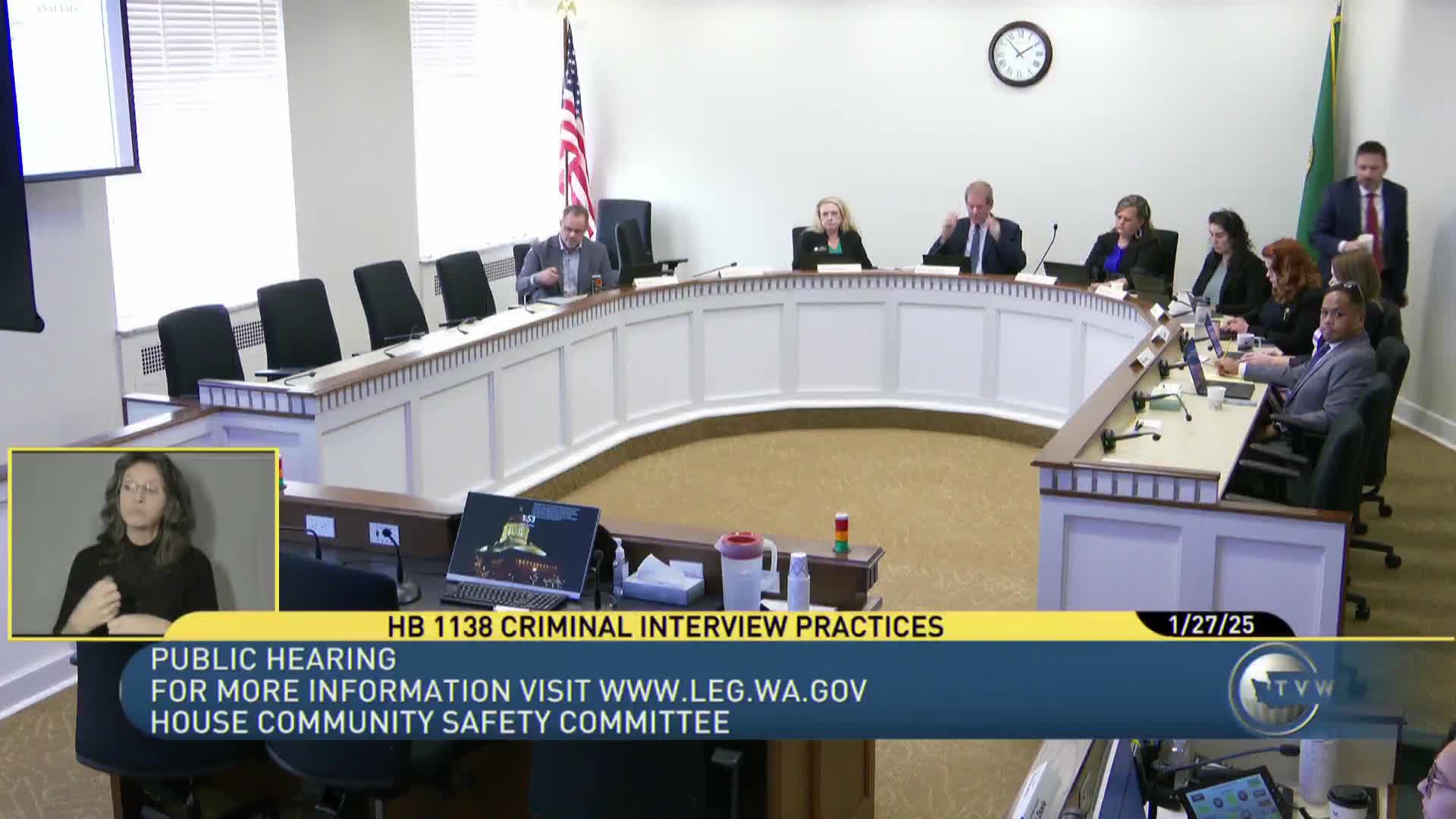Committee hears testimony for ban on deliberate police deception during custodial interrogations
Get AI-powered insights, summaries, and transcripts
Subscribe
Summary
House Bill 1138 would create a rebuttable presumption that statements obtained through intentional deception by officers during custodial interrogations are inadmissible, and would require the Criminal Justice Training Commission to provide evidence‑based interrogation training.
Corey Patton, committee staff, briefed the House Community Safety Committee on HB 1138 on Jan. 27, describing two principal provisions: (1) a rebuttable presumption that statements made during an interrogation are inadmissible if a court finds that an interrogating officer intentionally engaged in deception to obtain the statement, and (2) a requirement that the Criminal Justice Training Commission (CJTC) contract for training in evidence‑based interrogation and interview techniques to be offered at no cost to law enforcement beginning July 1, 2026.
The staff briefing explained the bill’s operative definitions: “interrogation” covers questions or other actions reasonably likely to elicit incriminating responses when a reasonable person would feel legally jeopardized; “deception” is defined as the knowing communication of false facts about evidence or unauthorized promises of leniency by an officer.
Supporters and exoneree testimony: Laura Zarraske, executive and policy director of the Washington Innocence Project, testified in strong support, saying the bill targets custodial circumstances where people are most vulnerable and that “we should be able to trust law enforcement to not lie to us in those circumstances.” Ted Bradford, a Washington exoneree who said he served 10 years after a false confession later overturned by DNA, described deception used against him in custodial questioning and urged passage. Amanda Knox, testifying that deception used in her interrogation in Italy betrayed her as a crime victim and “loosened [her] grip on reality,” also urged the committee to pass the bill.
Opposition and concerns: Prosecutors, narcotics investigators and law enforcement associations testified with concerns. Russell Brown of the Washington Association of Prosecuting Attorneys said training timelines in the bill are unrealistic and noted that no state has broadly banned deception with adults; he warned the bill’s definitions could be interpreted too broadly to curb legitimate investigative practices. Anne Anderson of the Washington State Narcotics Investigators Association warned undercover operations and confidential‑informant work could be “tremendously impaired” if deception were banned. James McMahon, policy director for the Association of Sheriffs and Police Chiefs, said existing constitutional protections, recording requirements (citing 2021 legislation) and Court rules address coercion and voluntariness, and urged careful drafting to avoid public‑safety impacts.
Legal mechanics and timeline: Under the staff explanation, the presumption of inadmissibility would take effect Dec. 1, 2026, and the prosecution could overcome it only by proving by clear and convincing evidence that the statement was voluntary and not the product of deception. The CJTC‑led training requirement would begin July 1, 2026.
Committee reaction: Chair Goodman invited stakeholders to continue discussions and signaled that the committee would examine implementation timing, exclusions for undercover/confidential‑informant tactics and the precise statutory language defining deception to avoid unintended public‑safety consequences. The committee closed the public hearing with no vote recorded.
